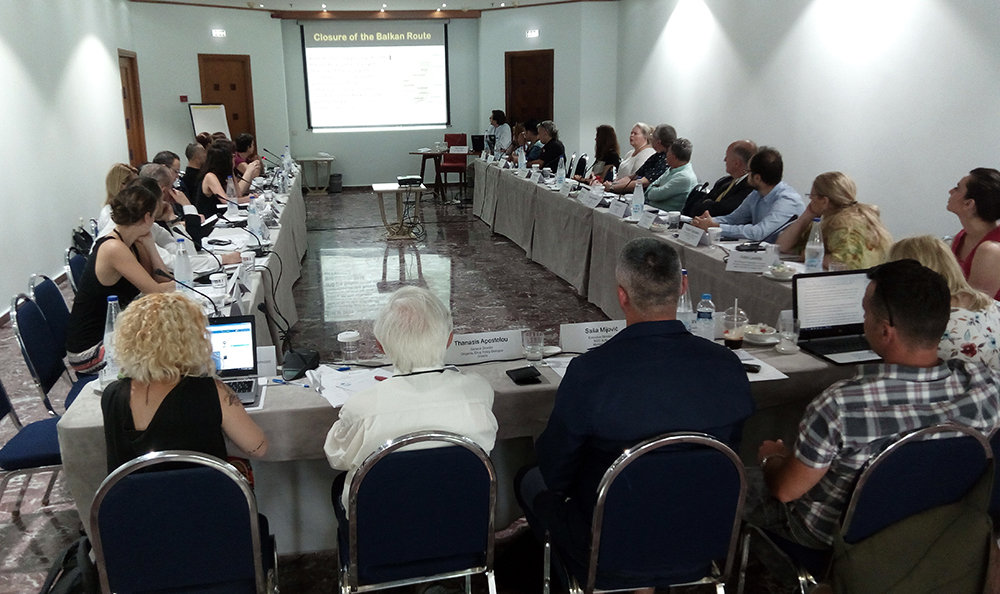The annual drug policy Regional Conference in South East Europe, “Socio-political developments and drug policy in SEE” was organised from 7 to 9 June 2017 in Thessaloniki, Greece. The conference is part of the regional project “Strengthening NGO capacity and promoting public health and human rights oriented drug policy in South East Europe”, supported financially by the European Commission and the Open Society Foundations. The organiser was Diogenis – Drug Policy Dialogue.
The conference aimed to bring together civil society organisations, policy makers, researchers and lawyers working on the drug issue in the region of South East Europe, but also people active in the field related to cultural change and young people. The meeting was organized in order to discuss drug policy developments and trends, exchange experiences and best practices in the region, Europe and the United Nations.
This year, topics covered recent emerging situations, reflecting the most important areas at the moment, including:
- Refugees, migrants and Drugs, the policy of the competent authorities and the involvement of NGOs. How do the competent authorities address the issue? Which are problematic aspects and how NGOs can contribute to a fair and effective policy? Harm reduction services and Refugees and migrants in countries of South East Europe.
- Youth culture, festivals, drug use and harm reduction in South East Europe: Policy implications for authorities, the festival and party organisers and harm reduction services. Difficulties and legal barriers to implementing harm reduction services. Suggestions for measures to prevent unintended risks. Policy aspects of Youth and festivals and Health protection.
- The evaluation of the Political Declaration 2009 – 2019 and its relation to the UNGASS outcome document. Main issues of discussion and the contribution of NGOs.
- The Follow up of the Harm reduction project in South East Europe. Latest data analysis from the research. Cost-effectiveness analysis of harm reduction services. Approaching local authorities and increase their engagement in the area of HR, including funding opportunities. Budget advocacy and monitoring for harm reduction. Accreditation of the services provided by the civil society organisations.
- Information about Current topics of importance – the regional project “Strengthening NGO capacity and promoting public health and human rights oriented drug policy in South Eastern Europe”, DPNSEE developments, activities of importance for drug policy in the region of SEE.
The general conclusion from the conference is that a new definition of harm reduction is needed to reflect the current situation and change in drug use, including type and the patterns of drug use.
Other conclusions were proposed on specific issues such as drug checking as potential integrated harm reduction measure in nightlife, which needs to be supported and systematically implemented from the side of the all stakeholders (as the Slovenian case showed its success), designing and implementing specific harm reduction services for immigrants and refugees, etc.



